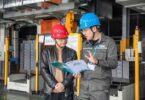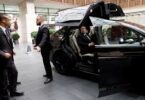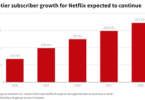BEIJING (Reuters): Nissan Motor Co is optimistic about partnering with a combined Renault and Fiat Chrysler (FCA), as long as it can protect the ownership of technology developed over two decades of working with Renault, a senior executive told Reuters.
The executive, who declined to be identified because he is not authorized to speak to the media, said he was cautiously optimistic about the possibility of generating “synergies” by sharing Nissan’s autonomous drive know-how, electrification and greenhouse-gas-scrubbing technologies for powertrains.
But he said the possible $35 billion merger of Renault SA and FCA would not give FCA the automatic right to use those technologies, which it needs to meet stringent emissions regulations and better compete in a industry being transformed by electric vehicles. He also floated the possibility that Nissan could look at boosting its stake in Renault, or a merged Renault-FCA, to gain more say in shaping the future of the alliance.
“We would go ahead with partnering or cooperating with FCA only if we can guarantee tangible benefits from sharing technologies with FCA and only if we can work out conditions that are satisfactory to us,” the Yokohama-based executive said. “If Renault wants to pursue this deal, we feel we need to look seriously at supporting them,” he said.
The executive’s comments highlight how Nissan could look to leverage its advanced technology to gain greater bargaining power with a merged Renault-FCA. Renault is Nissan’s top shareholder with a 43.4% shareholding, while Nissan holds a 15% non-voting stake in the French automaker. That unequal partnership has long rankled Nissan, which is the bigger company by far.
A Nissan spokesman referred Reuters to a statement issued on Monday, where Nissan Chief Executive HirotoSaikawa said: “I believe that the potential addition of FCA as a new member of the alliance could expand the playing field for collaboration and create new opportunities for further synergies.”
“That said, the proposal currently being discussed is a full merger which—if realized—would significantly alter the structure of our partner Renault. This would require a fundamental review of the existing relationship between Nissan and Renault,” Saikawa said, adding that Nissan would analyze and consider its “existing contractual relationships”.
BOOSTING STAKE?
If technology alone doesn’t give Nissan enough leverage in negotiating with Renault and FCA, the executive said Nissan could consider boosting its stake in Renault or the merged FCA-Renault to gain more influence.
The executive said Nissan has enough financial and other resources to pursue such an option, but declined to comment further.
More than a year ago, Nissan started an early study about possible benefits of adding FCA to the Renault-Nissan alliance, one begun at the instruction of ousted Chairman Carlos Ghosn, the executive said.
“There is no doubt there are potentially many opportunities for Nissan to share technology with FCA,” the executive said, referring to the study.
As examples, he pointed to the full-size pickup truck business in the United States between FCA’s Dodge and Nissan brands, as well as the possibility of sharing with the Jeep and Alfa Romeo brands the advanced gasoline engine technology Nissan is now using for Infiniti, its premium brand.
FCA is discussing a Renault special dividend and stronger job guarantees in a bid to persuade the French government to back its proposed merger between the car makers, Reuters has reported.
The deal would create the world’s third-largest automaker, but it also raises difficult questions about how Nissan would fit into a radically changed alliance.
Despite being long-time alliance partners, the executive noted that Nissan was completely blindsided by news of the FCA deal. “Renault did not give us the proper heads-up, and that should not have been like that.”
Still, he was optimistic that an enlarged alliance could work, at least from Nissan’s perspective of sharing its technology.
“Cooking a meal for three or four isn’t all that different,” he said.






